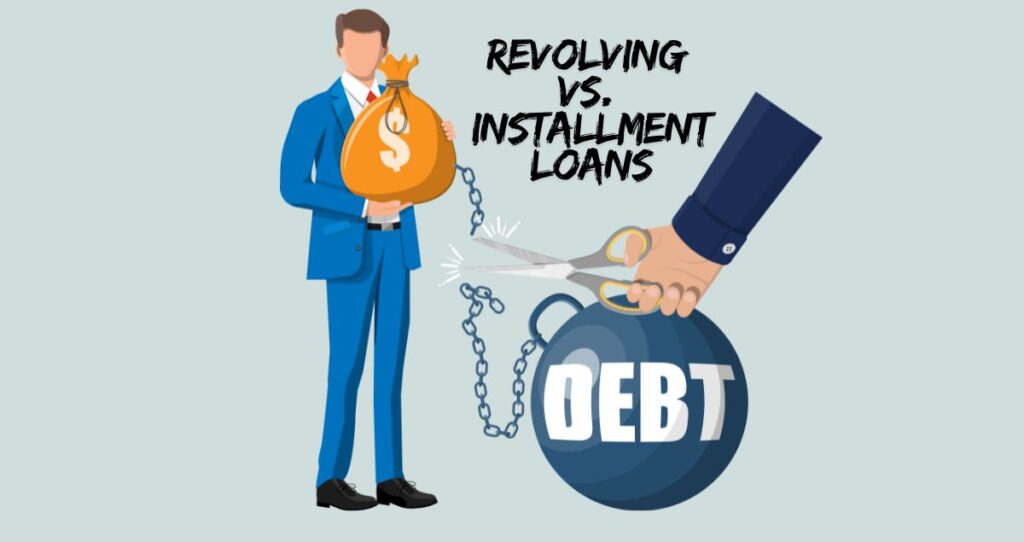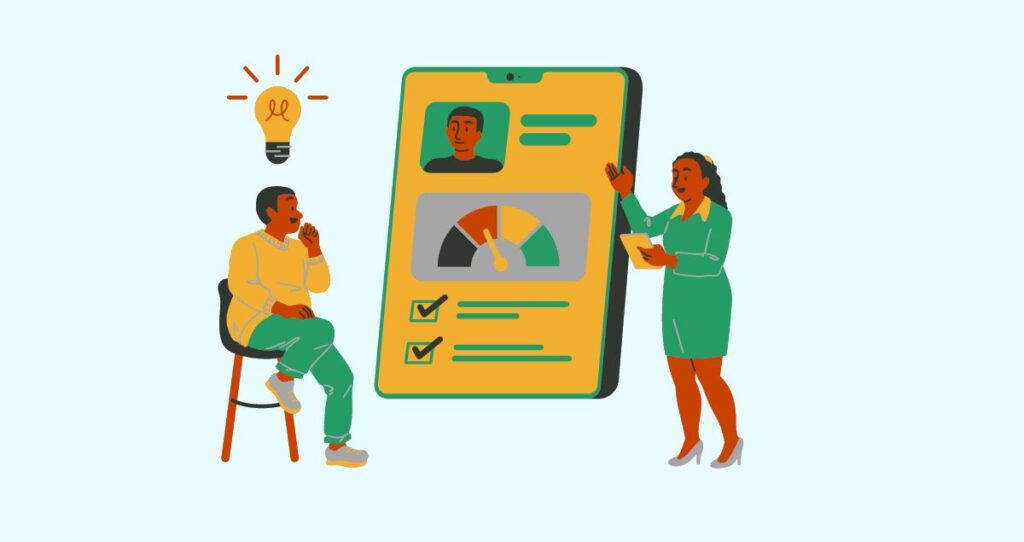Your credit report is one of the most important documents you need to keep your attention to. Lenders, insurance companies, employers, and other businesses you deal with use the information from your credit report to decide your creditworthiness. In order words, your credit report is important because it helps lenders to access if you manage your finances responsibly and whether they should give or deny you credit or services.
This article will show you the benefits of checking your credit reports and why your credit report is important in general.
What is a credit report and how does it work?
When it comes to your past and current financial activities, it is hard to evaluate every little detail. That is why having everything compiled together is beneficial to you and the businesses you deal with. A credit report solves that issue.
Your credit report is a document that shows information about your credit history such as payment history, credit accounts, credit utilization, balances, etc. Lenders and businesses that manage your credit accounts report your credit account activities to three major reporting agencies(Experian, TransUnion, and Equifax). Credit bureaus, in turn, compile all of your credit information into your credit reports.
In addition, major credit bureaus use some information from your credit reports to calculate your credit score using credit scoring models. There are many credit scoring models that vary based on the industry. However, the most common credit scoring models are FICO Score Model and VantagageScore Model. Different models apply different weights to information from your credit reports. Due to different models used to calculate your credit scores, you will see slight variations in your credit scores.
Related: Credit Report Overview
Why is a credit report important?
Your credit report is important to you and other financial institutions you conduct businesses with. They(credit reports) reflect your past and recent credit account activities. By looking at your credit report, one can tell how you have been behaving financially.
Lenders rely on information from your credit reports to understand how you behave when it comes to credit. The following are some of the questions lenders will look for when checking your credit reports and credit score.
- Do you make payments on time?
- How many debts do you currently have?
- How good is your credit score?
- Do you have a higher credit utilization?
- Have you recently declared bankruptcy?
- Have you missed payments?
- Do you apply for credit very often?
- Do you have a lot of negative items?
This information will help lenders to determine how risky it is to lend you money. Everything in the lending industry is about risk assessment. If you cannot make your payments on time, or pay at all, then you are automatically a risky borrower. For this reason, you’ll be denied credit or pay unaffordable interest rates when you get approved for credit.
The following are ways lenders can use your credit reports
- When applying for insurance. Insurance companies can use the information from your credit reports to approve you for insurance. They can also use the same information to decide the rates you will be paying for that insurance.
- When looking for apartments. Landlords can use your credit reports to access whether they can approve you as a tenant or not. When you have bad credit, you find it difficult to get an apartment. Bad credits are associated with poor past financial decisions which could affect your ability to make payments. Some landlords give you a discount or require no downpayment when you have good credit.
- When looking for a loan/mortgage. Your credit report is important to lenders. Moneylenders such as auto loan providers and mortgage companies such as banks rely on the information from your credit reports to decide your creditworthiness. Your credit reports also help in determining the interest rates you pay on your auto loan, mortgage, personal loan interest, etc.
- When looking for employment. Your credit reports are important to some companies. When applying for jobs, some companies look for your credit reports especially when you are getting into financial-related jobs. Depending on what was reported in your credit reports, your employer can decide to give you a job or reject you.
What are the benefits of checking your own credit reports?
Is it really important to check your own report? If you have never checked your reports, it is important that you get a copy of your credit report as soon as you can. You need to make sure that the information reported in your credit reports is updated and correct.
One of the most important steps you will take when repairing your credit is to clean up your credit report. Major credit agencies collect your credit information and make your credit reports. During this process, someone will make a mistake. That is why sometimes you see errors and inaccuracies in your credit reports.
For example, they could forget to update your mailing address which is tied to your old debts. You could also see paid-off debts being reported as active. All this mismatched information will affect the health of your credit and credit score in general.
To take the matter into your own hands, you need to constantly check your credit report and dispute any errors, or inaccuracies. You can also try to remove negative information from your credit reports. Your lenders and credit bureaus are not in charge of correcting your reports. It is your job to make sure that your credit reports are as clean as they can get.
If you want to dispute errors and inaccuracies from your report, use the following guide. It goes into detail on how and where you can dispute errors from your credit reports.
Related: How to dispute an error on your credit report?
What information will I find on my credit report?
Your report has all information regarding your credit history. In order words, all recent credit activities will be on your credit reports. The following is some information you will find on your credit reports.
- Your identity. This section will include your full legal name, address, social security number, employment, date of birth, mailing addresses, etc.
- Current credit accounts. All information regarding your credit accounts includes all auto loans, mortgages, student loans, personal loans, credit card accounts, etc. You will also find information about payment activities, missed payments, credit utilization, age of your credit accounts, how much you owe lenders/creditors, etc.
- Public records(if any). Any public information regarding your credit accounts will be present. This will include tax liens, bankruptcies, foreclosure, collections, evictions, charge-offs, etc.
- Recent inquiries. Your credit report also shows all information regarding inquiries against you. An inquiry happens when a lender requests to see your credit file to assess the risk involved in lending you money. Any company that requested this information will be present in your report.
How do credit reporting companies get my information?
Credit bureaus get information related to your accounts from different sources. The first way major credit bureaus receive your information is from your lenders.
The information associated with your credit accounts gets reported to credit reporting agencies. Your lenders voluntarily report your information. Not all lenders will report to all major bureaus and they do not report at the same time. Others do not report your information at all. These differences in where and when your information was reported will cause variations in your credit scores.
Some information lenders submit, includes but is not limited to, payment history, credit utilization, inquiries, open account, balances, missed payments, etc.
How to use your credit report?
One of the benefits of checking your credit reports is to help you understand where you stand in terms of debt management and your financial history in general.
If you have bad credit, your credit report will show you exactly what you are doing wrong. For example, a missed payment will be reflected on your report and will lower your credit score. Knowing this information will be the first step to repairing your credit. You will also be able to see negative items submitted by your lenders.
From there, you can choose to dispute that information if you believe it was submitted wrongly.
Another reason your credit report is important is that it helps you detect errors and inaccuracies on your credit report. People who put together your credit reports are humans and can make mistakes. It is your responsibility to check your annual credit reports and make sure that what has been reported reflects your reality. Any errors, inaccuracies, identity thefts, etc. reported on your credit report should be disputed and removed or corrected.
Where can I get a copy of my credit report?
In order to take full advantage of your reports, you must get a copy of your credit report. Although there are businesses that sell credit reports, you don’t need to pay a single penny for your credit report.
You are eligible to get a free copy of your annual credit report from each major credit reporting agency (Equifax, TransUnion, and Experian). You can either get all copies at once or have them in different months. For example, you can have your first report from one agent in April, the second report from the second major bureau in August, and finally the last one in December. This way, you will monitor the progress you are making on your credit throughout the year.
If you want to get a free copy of your annual credit report, go to the following website or call the number listed below. The annual credit report website is the only government-authorized website to provide free credit reports.
- Get a free copy of your annual credit report from: AnnualCreditReport.com
- By phone: Call (877) 322-8228
The bottom line
Your credit report is very important as it helps lenders to assess your financial background. It(credit report) shows your payment history, utilization rate, how much debt you have, bankruptcies, inquiries, number of accounts you have and their balances, etc. The outcome of this evaluation helps lenders to determine your creditworthiness. In addition, some information from your credit reports helps lenders to determine the interest rates you pay on your loans.
Another benefit of the credit report is that it helps you understand where you stand when it comes to debt management. Furthermore, your credit report shows everything that is affecting the health of your credit and credit score. To stay on top of the credit games, you should always check your credit report and make sure that they are updated at all times.









